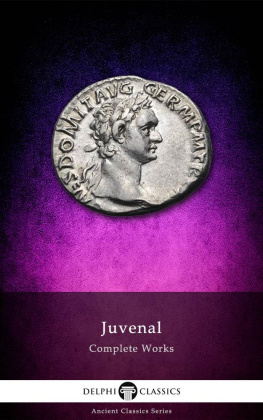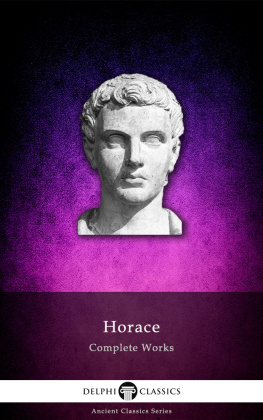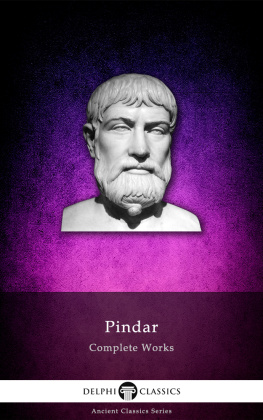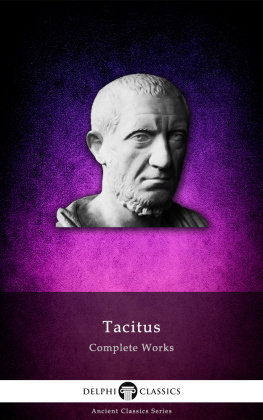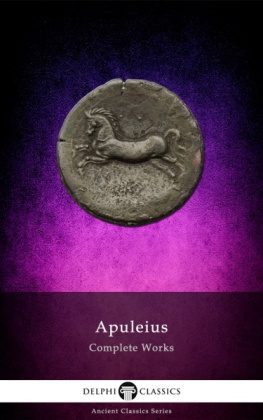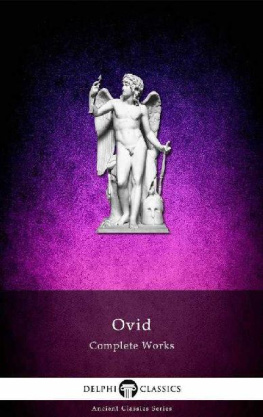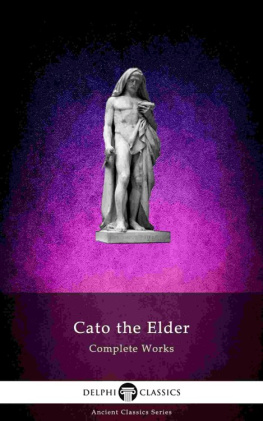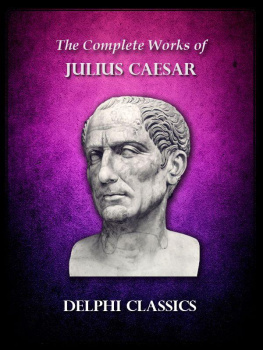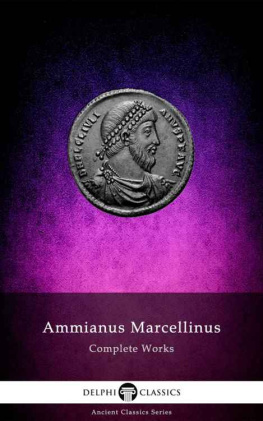Domitian (51 96 AD), the Roman Emperor from 81 to 96 AD, is referenced in several of Juvenals Satires. In Satire IV: The Emperors Fish, Juvenal makes Domitian and his court the objects of his ridicule in this mock-epic tale of a fish so prodigious that it was fit for the Emperor alone.
Satire 1. Difficile est Saturam non Scribe re
[1] What? Am I to be a listener only all my days? Am I never to get my word in I that have been so often bored by the Theseid of the ranting Cordus? Shall this one have spouted to me his comedies, and that one his love ditties, and I be unavenged? Shall I have no revenge on one who has taken up the whole day with an interminable Telephus, or with an Orestes, which, after filling the margin at the top of the roll and the back as well, hasnt even yet come to an end? No one knows his own house so well as I know the groves of Mars, and the cave of Vulcan near the cliffs of Aeolus. What the winds are brewing; whose souls Aeacus has on the rack; from what country another worthy is carrying off that stolen golden fleece; how big are the ash trees which Monychus tosses about: these are the themes with which Frontos plane trees and marble halls are for ever ringing until the pillars quiver and quake under the continual recitations; such is the kind of stuff you may look for from every poet, greatest or least. Well, I too have slipped my hand from under the cane; I too have counselled Sulla to retire from public life and sleep his fill; it is a foolish clemency when you jostle against poets at every corner, to spare paper that will be wasted anyhow. But if you can give me time, and will listen quietly to reason, I will tell you why I prefer to run in the same course over which the great nursling of Aurunca drove his steeds.
[22] When a soft eunuch takes to matrimony, and Maevia, with spear in hand and breasts exposed, to pig-sticking; when a fellow under whose razor my stiff youthful beard used to grate challenges, with his single wealth, the whole nobility; when a guttersnipe of the Nile like Crispinus a slave-born denizen of Canopus hitches a Tyrian cloak on to his shoulder, whilst on his sweating finger he airs a summer ring of gold, unable to endure the weight of a heavier gem it is hard not to write satire. For who can be so tolerant of this monstrous city, who so iron of soul, as to contain himself when the brand-new litter of lawyer Matho comes along, filled with his huge self; after him one who has informed against his noble patron and will soon despoil our pillaged nobility of what remains to them one whom Massa dreads, whom Carus propitiates by a bribe, and to whom Thymele was made over by the terrified Latinus; when you are thrust on one side by men who earn legacies by nightly performances, and are raised to heaven by that now royal road to high preferment the favours of an aged and wealthy woman? Each of the lovers will have his share; Proculeius a twelfth part, Gillo eleven parts, each in proportion to the magnitude of his services. Let each take the price of his own blood, and turn as pale as a man who has trodden upon a snake bare-footed, or of one who awaits his turn to orate before the altar at Lugdunum.
[45] Why tell how my heart burns hot with rage when I see the people hustled by a mob of retainers attending on one who has defrauded and debauched his ward, or on another who has been condemned by a futile verdict for what matters infamy if the cash be kept? The exiled Marius carouses from the eighth hour of the day and revels in the wrath of Heaven, while you, poor Province, win your cause and weep!
[51] Must I not deem these things worthy of the Venusians lamp? Must I not have my fling at them? Should I do better to tell tales about Hercules, or Diomede, or the bellowing in the Labyrinth, or about the flying carpenter and the lad who splashed into the sea; and that in an age when the compliant husband, if his wife may not lawfully inherit, takes money from her paramour, being well trained to keep his eyes upon the ceiling, or to snore with wakeful nose over his cups; an age when one who has squandered his family fortunes upon horse flesh thinks it right and proper to look for the command of a cohort? See him dashing at break-neck speed, like a very Automedon, along the Flaminian way , holding the reins himself, while he shows himself off to his great-coated mistress!

